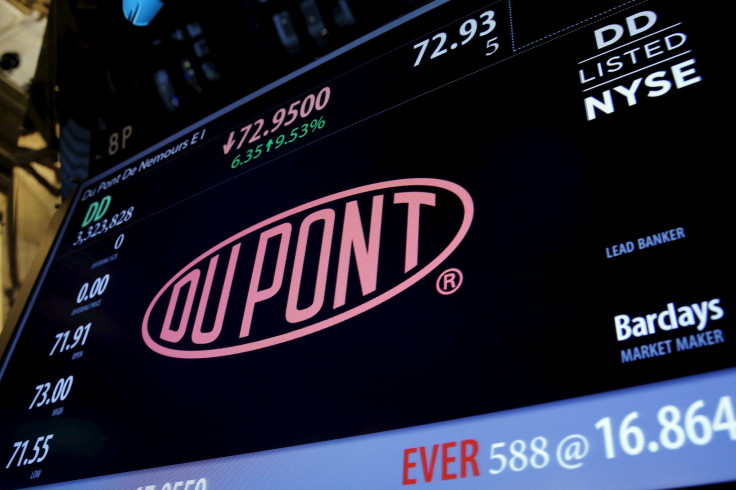Dow Jones Industrial Average Swings To Triple-Digit Loss As Early Oil Rally Vanishes

U.S. stocks swung deep into the red Wednesday after starting the day with a strong rally driven by a brief rise in oil prices and news that Dow Chemical and DuPont are in talks to merge, which would create a $130 billion chemicals behemoth. Investors are jittery right now as they weigh the implications of last week’s good U.S. employment numbers and next week’s expected Fed rate hike, market observers said.
"At the moment perhaps the biggest risk is not raising rates, which would be a no-confidence vote in the U.S. economy, fueling investor angst and reducing near-term appetite for equities," Terry Sandven, chief equity strategist at U.S. Bank Wealth Management, told Reuters.
The Dow Jones Industrial Average (INDEXDJX:.DJI) closed Wednesday down 75.70 points, or 0.43 percent, to 17,492. The Standard & Poor's 500 index (INDEXSP:.INX) fell 15.97 points, or 0.77 percent, to 2,048. The Nasdaq composite (INDEXNASDAQ:.IXIC) lost 75.38 points, or 1.48 percent, to 5,023.
Seven out of 10 S&P 500 sectors closed down, with the declines reflected in consumer discretionary and information technology. Shares in tech giant Apple Inc. (NASDAQ:AAPL) dropped the most among the 30 Dow components on concern about whether iPhone sales estimates are too high.
DuPont (NYSE:DD) led Dow gains Wednesday, rising 11.85 percent to $74.49 on news the chemicals giant would soon announce a merger with Dow Chemical Co. (NYSE:DOW), whose share price was up 11.96 percent to $56.99 by early-afternoon trading.
Costco Wholesale Corp. (NASDAQ:COST) stock plunged 5.42 percent to $159.72 after the membership warehouse club announced a third quarterly decline in same-store sales, a key retail metric that excludes recently opened outlets.
West Texas Intermediate crude oil, the U.S. benchmark for oil prices, lost 0.69 percent to $37.25 per barrel for January delivery on the New York Mercantile Exchange. U.S. crude has to be above $50 a barrel for most U.S. drillers to turn a profit on their activities.
Brent crude, the global benchmark oil price, recovered to gain 0.15 percent to $40.32 for January delivery on the London ICE Futures Exchange after dipping below $40, marking its lowest price since the 2009 global recession. This follows OPEC giving little indication Friday it would trim output amid a global oil glut.
© Copyright IBTimes 2025. All rights reserved.






















